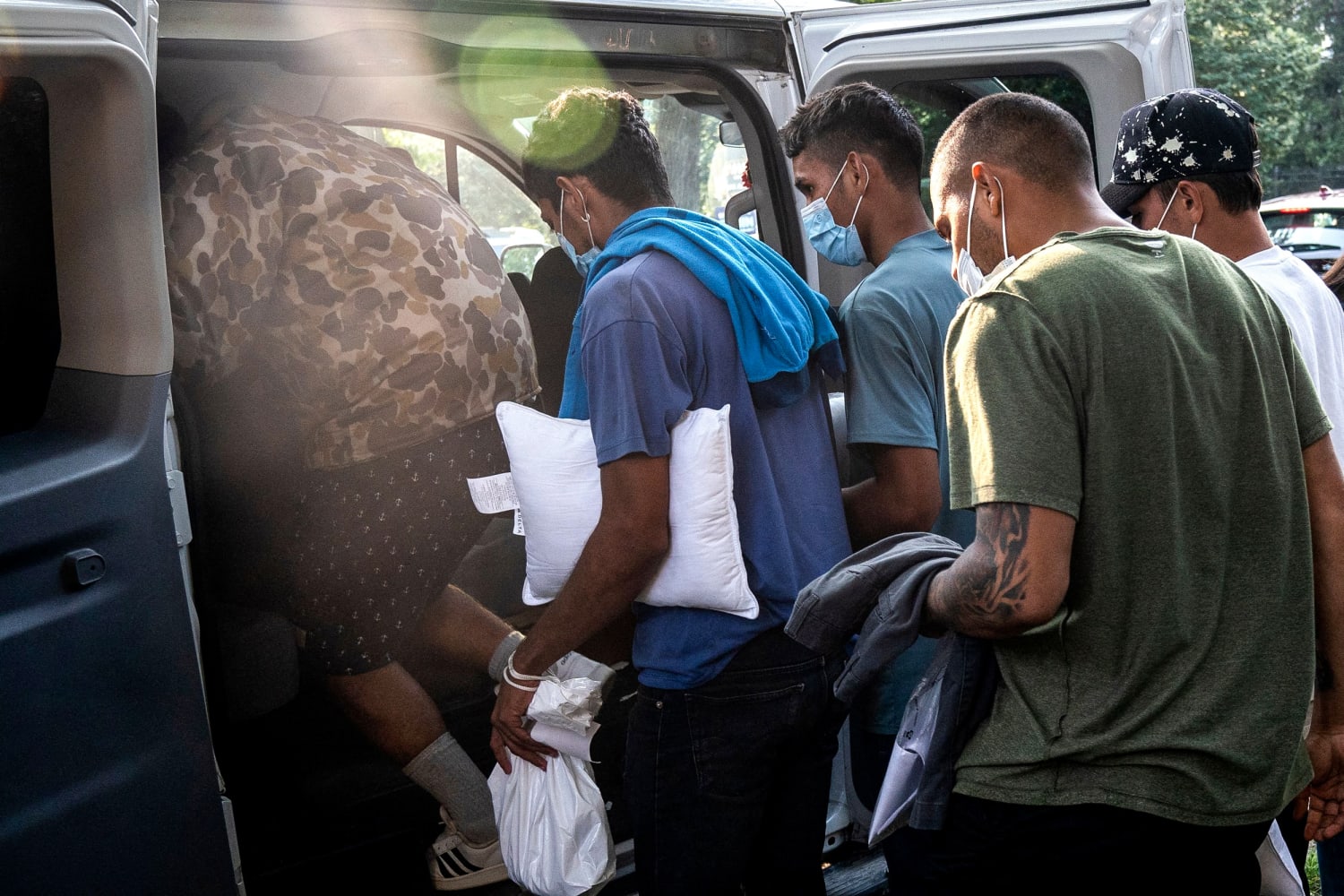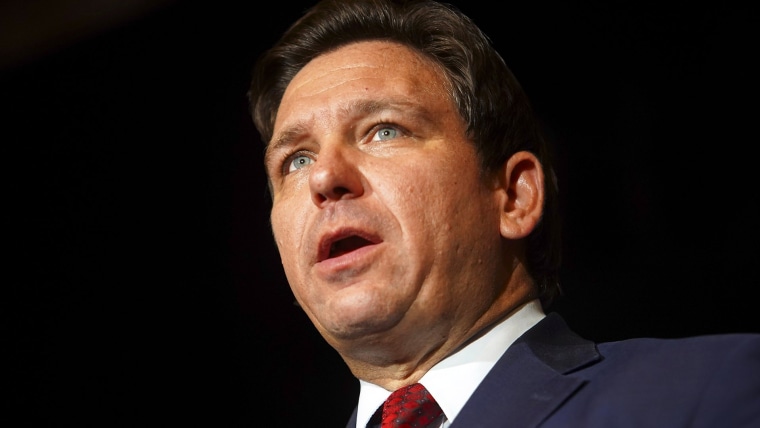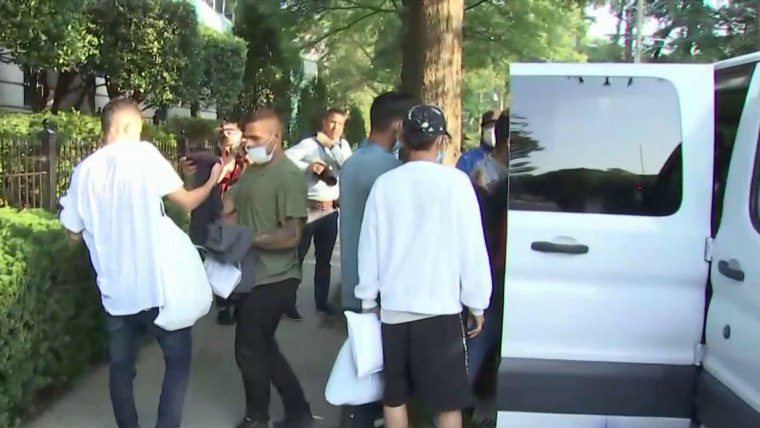The arrival of thousands of migrants in New York, Washington, Chicago and beyond has sent officials in those cities scrambling to establish a system of support services, with mixed success.
In New York, the Asylum Seeker Resource Navigation Center aims to provide assistance, including school enrollment. The Office of Migrant Services in Washington, D.C., will offer urgent medical care and connection to resettlement services. And in Illinois, the governor has issued a disaster proclamation to “unlock resources” to assist asylum-seekers.
But as the buses keep arriving, advocates and volunteers said, the need for even more support is increasingly clear, and asylum-seekers are falling through the holes of an already stretched social safety net.
Ariadna Phillips, the founder of South Bronx Mutual Aid, said that when buses of migrants began arriving in New York months ago, there were one or two a day. The number can now be as high as eight, she said.
Phillips said migrants have been calling volunteer groups in the city “constantly” with problems, leaving volunteers in rapid-response mode.
“The scope and the magnitude of crises is colossal,” she said.
Busloads of undocumented migrants have arrived in liberal strongholds without warning this summer as the Republican governors of Texas and Arizona have sought to push an anti-immigrant agenda.
Texas Gov. Greg Abbott said last week that his state has bused more than 11,000 migrants out of Texas to so-called sanctuary cities — 8,000 to Washington, 2,500 to New York City and 500 to Chicago — since August, in what his office calls Operation Lone Star. Arizona has bused nearly 2,000 people to Washington.
In an escalation of the tactic, Florida Gov. Ron DeSantis last week chartered two planes carrying about 50 migrants from San Antonio to Martha’s Vineyard, Massachusetts. Migrants who were part of the trip have filed a class-action lawsuit against DeSantis and other state officials, alleging they were victims of fraud for political purposes.
‘Coming here with nothing’
Those arriving need food, clothing and medical care, straining volunteer groups and nonprofit agencies.
“Everyone is coming here with nothing,” said Ilze Thielmann, the director of Team TLC NYC.
Thielmann said migrants in New York are met by volunteers who ask whether they are waiting for family in town, plan to travel to other cities to meet family or need transportation to shelters.
The city and volunteers also work together to provide food, water and some basic supplies, such as clothing.
Beyond that, the infrastructure is fragile.
New York Mayor Eric Adams said last week that 8,500 of the 11,000 migrants who have come to the city are still living within the shelter system. The influx has led the mayor’s office to reassess “the city’s practices with respect to the right to shelter,” a law that guarantees that the city provides shelter to anyone who asks for it.
Volunteers got calls Tuesday that migrants who had been assigned to a men’s shelter were being turned away, Phillips said.
Others have said they’ve been threatened with violence in the shelters and even assaulted, she said. There have also been calls from women who said their children hadn’t been fed in the shelters or had been served food that was still frozen, she said.
In Chicago, some migrants have been stranded at suburban hotels with limited transportation and are still struggling to receive mental health services in the constant housing reshuffling, advocates said.
At least 60 migrants who were taken to hotels in Burr Ridge and other suburbs to make room at shelters were later removed and sent to Chicago hotels this week after Burr Ridge Mayor Gary Grasso, a Republican, blasted Chicago Mayor Lori Lightfoot, a Democrat, for sending them there without notice, adding that he is “not a believer in sanctuary cities.”
New aid offices created
In recent days, New York, Chicago and Washington all have announced initiatives to shore up the support systems.
Washington Mayor Muriel Bowser declared a public emergency this month in response to the busing and is investing $10 million in a new Office of Migrant Services. The office will provide “reception, respite, meals, temporary accommodations, urgent medical needs, transportation to final destinations, connection to resettlement services, translation services” and other services, Bowser’s office said in a news release.
Adams last week announced the opening of the Asylum Seeker Resource Navigation Center, which he said “will allow newly arrived asylum-seekers to access the services or support they need, including legal services, school enrollment and health care — foundational items to help families move forward.”
And Illinois Gov. J.B. Pritzker last week deployed 75 National Guard members to assist with the logistics of receiving migrants under his disaster proclamation.
The Illinois Emergency Management Agency has established a Unified Area Command center in Chicago to quickly deploy resources to support the operations.
Chicago’s benefit of hindsight
In some ways, Chicago has had the benefit of hindsight as it prepares for arrivals while watching how the situation has unfolded in New York and Washington, officials and advocates there said.
“We were preparing by being in contact with our Catholic Charities partners in both of those cities, and we learned so much good stuff from them,” said Marie Jochum, a senior director at Catholic Charities Chicago, which has been working with many of the migrants who were bused to the city. “That first day at the reception center there was a plan, and folks knew their roles.”
Chicago has received only about 800 migrants since Aug. 31.
Migrants to Chicago have been dispatched to shelters set up by the Salvation Army, Jochum said. Caleb Senn, the Chicago-area commander of the Salvation Army, said there are two shelters, one for families and the other for single men.
Within one to two days of arriving, they are taken to a central reception center where they can connect with relatives and access medical and legal help and family services, Jochum said.
Other organizations are facilitating similar services.
The Little Village Community Council, which has been working independent of the city, has provided migrants with necessities like undergarments and other clothing, and it has even set some up with cellphones.
“Many came with just the clothes they were wearing, sometimes what they wore for months,” said Baltazar Enriquez, who heads the local nonprofit agency.
The organization has also already gotten some of the migrants cash-paying jobs as they await legal hearings.
“We’ve been helping them integrate into the community,” Enriquez said. “Right now, there’s a need for the workforce and everybody’s looking for employees, and we have them here.”
Mental health services are lacking
Still, Enriquez said, there is a major hole in that care: mental health services.
“Mentally, they just went through so much” on the way to the U.S., he said. “They got beaten. Some of them were even raped. Some of them were jailed. I mean, they are really vulnerable to some trauma.”
Enriquez believes the city can do more to address the trauma. “We have been screaming our lungs out about their trauma, but they act like we’re crazy.”
Both the Salvation Army and Catholic Charities say they have providers assessing mental health and that those conducting intake are bilingual social workers. Mental health screenings are also part of the initial medical checkups at city health centers, Jochum said.
Adams, New York’s mayor, urged asylum-seekers Monday to seek out the city’s health services if they are struggling with mental health challenges after an asylum-seeker, later described as a mother, died by suicide in a city shelter.
Thielmann said she has been “sick to my stomach” since she heard the news, wondering whether she had greeted the woman, told her “Welcome to New York” and “led her to believe that she was going to be OK here.”
“It’s just a real gut punch to do this work and to know how little we really can help sometimes,” Thielmann said through tears. “But the city has to step up more, the state has to step up, the federal government has to step up and actually serve these people and not just dump them into shelters and have them flounder.”
Source: | This article originally belongs to Nbcnews.com












